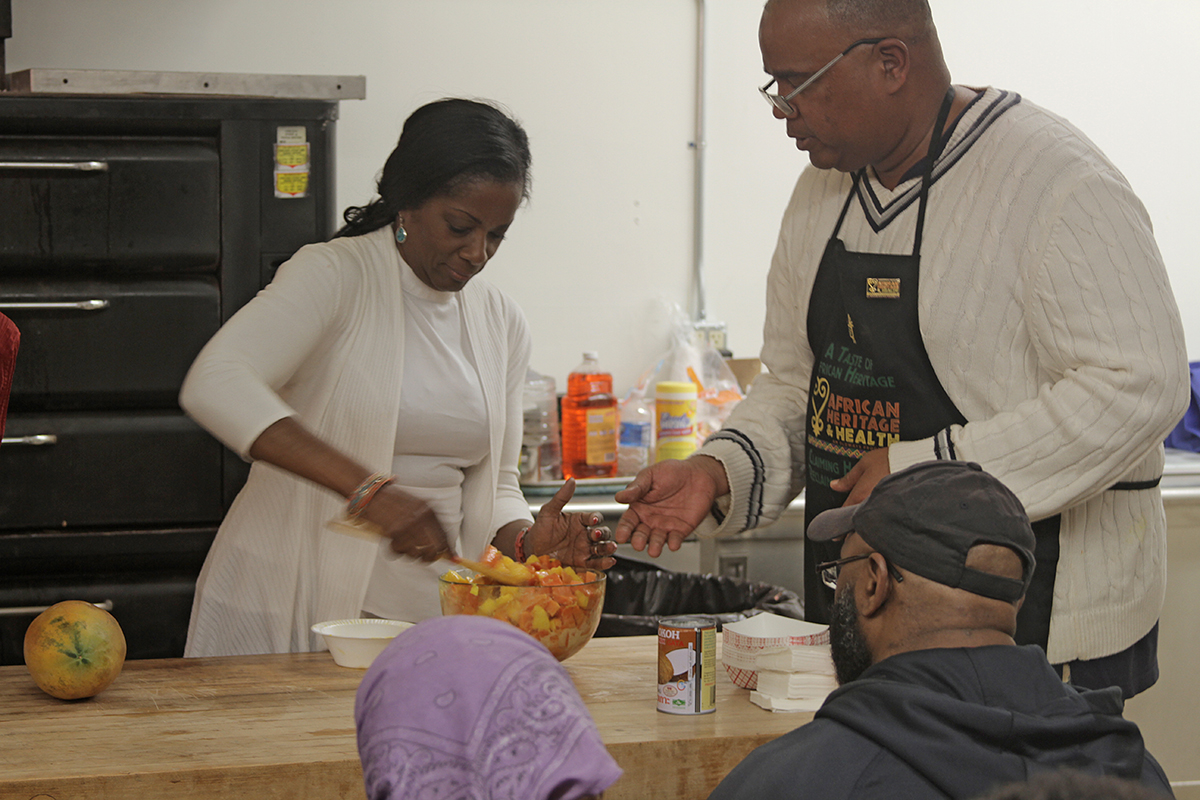A Taste of African Heritage Fuses Nutrition and Tradition

A Taste of African Heritage/Photo provided
The African American community is disproportionately plagued by chronic conditions ranging from heart disease and high blood pressure to diabetes. But a Boston-based program is out to prove that these sobering statistics are not predetermined—nor are they irreversible.
After a three-year hiatus, food and nutrition nonprofit Oldways is once again offering its A Taste of African Heritage (ATOAH) classes in Boston. Program Manager Johnisha Levi explains that ATOAH, which teaches a combination of cooking skills, nutrition science, and cultural history, empowers students to find “healthy ways to eat that take into account cultural heritage and traditional foods,” while also hopefully chipping away at risk factors for chronic disease.
Lessons are taught by volunteer instructors and based on Oldways’ African Heritage Diet Pyramid, which reflects nutritious foods that are inextricably linked to African culture. (It’s also simply a common-sense model of healthy eating, prioritizing greens, vegetables, fruits, tubers, legumes, whole grains, herbs, and spices over animal products and sweets.) “These are foods that are part of our heritage,” Levi says. “A lot of these foods are familiar to you, so you can use them in a way that elevates your health and improves your longevity.”
The familiarity of ingredients is crucial to the success of ATOAH, Levi explains, since the whole idea is to “meet students where they are” and make it easy and natural to lead a healthier lifestyle. Indeed, Oldways takes pains to ensure that the lessons are both accessible—they’re often free and open to the public—and practical, giving students the tools necessary to apply class principles in their own homes.
“The biggest takeaway, I think, is that a healthier lifestyle is within your reach,” Levi says. “You can do this in an affordable way. You can be healthier by cooking simple recipes yourself at home. It doesn’t have to be very complicated. It doesn’t have to take hours of time. You don’t have to eat in this one way in order to improve your life and your chances with chronic diseases.”
Right now, ATOAH classes are offered for free weekly at the Daily Table, in Dorchester. There will also be a $5 one-off lesson at the Boston Public Market on October 3. Learn more about both programs here.

